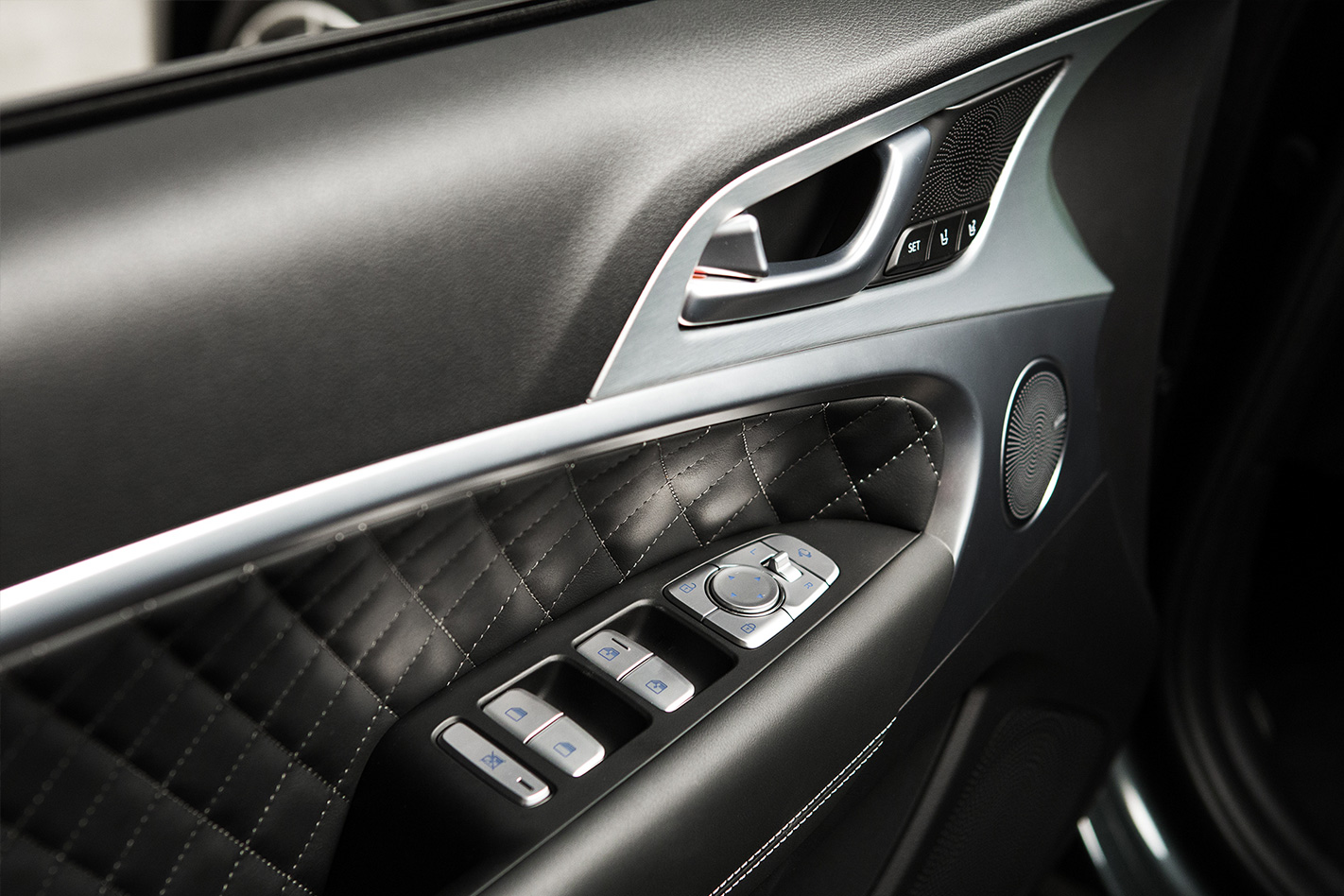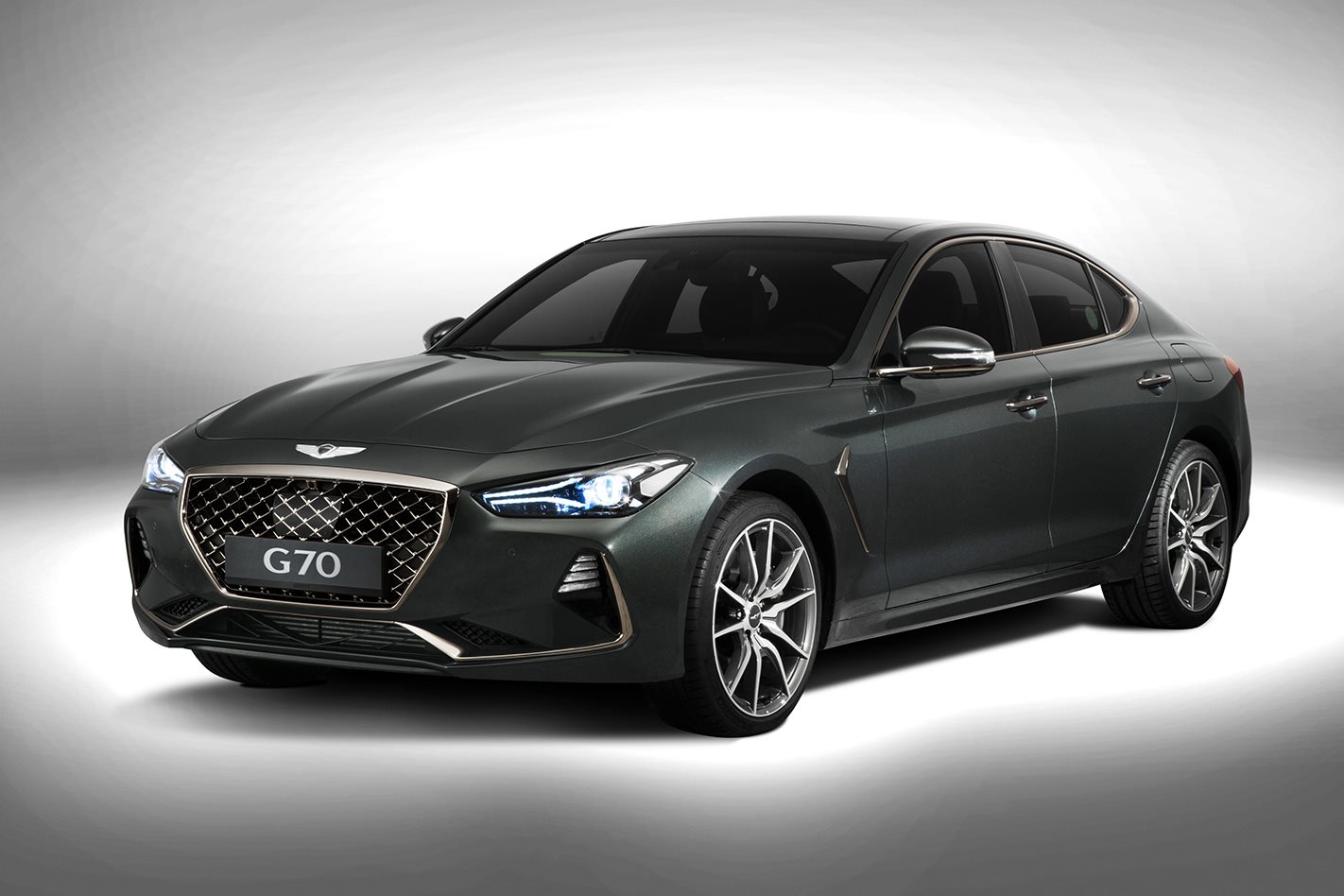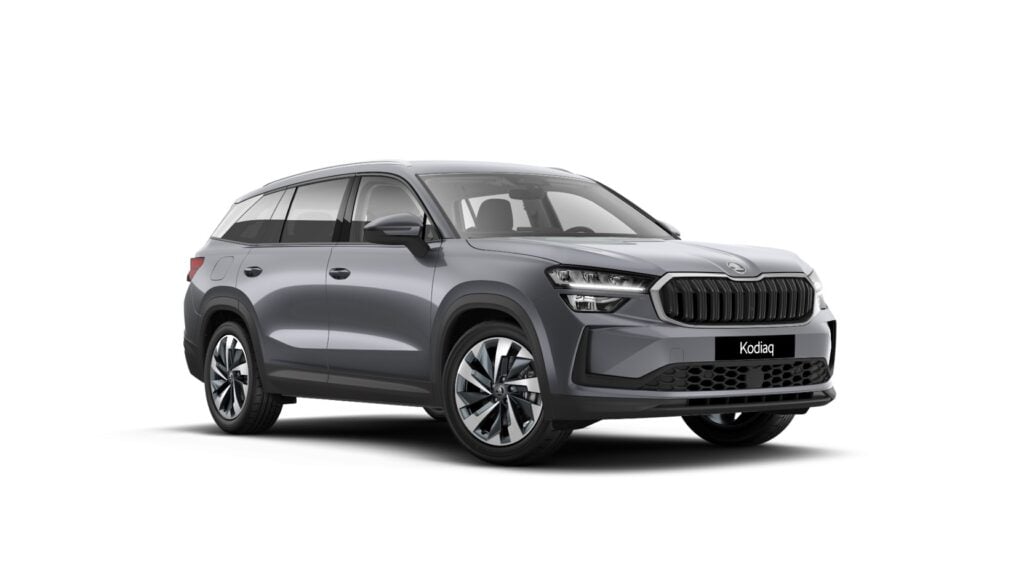AS OFFICIAL pics finally emerge of the new Genesis G70 – the crucial premium mid-size model that will lead the brand’s 2018 launch in Australia – expectations continue to grow. Wheels will drive the car in Korea on September 16, and you can read our first impressions here on Monday.
Here’s what we can tell you so far: the Genesis G70 goes on sale in Korea next week; Australian deliveries will begin in the first quarter of next year. Hyundai Australia is unable to be any more specific than that.
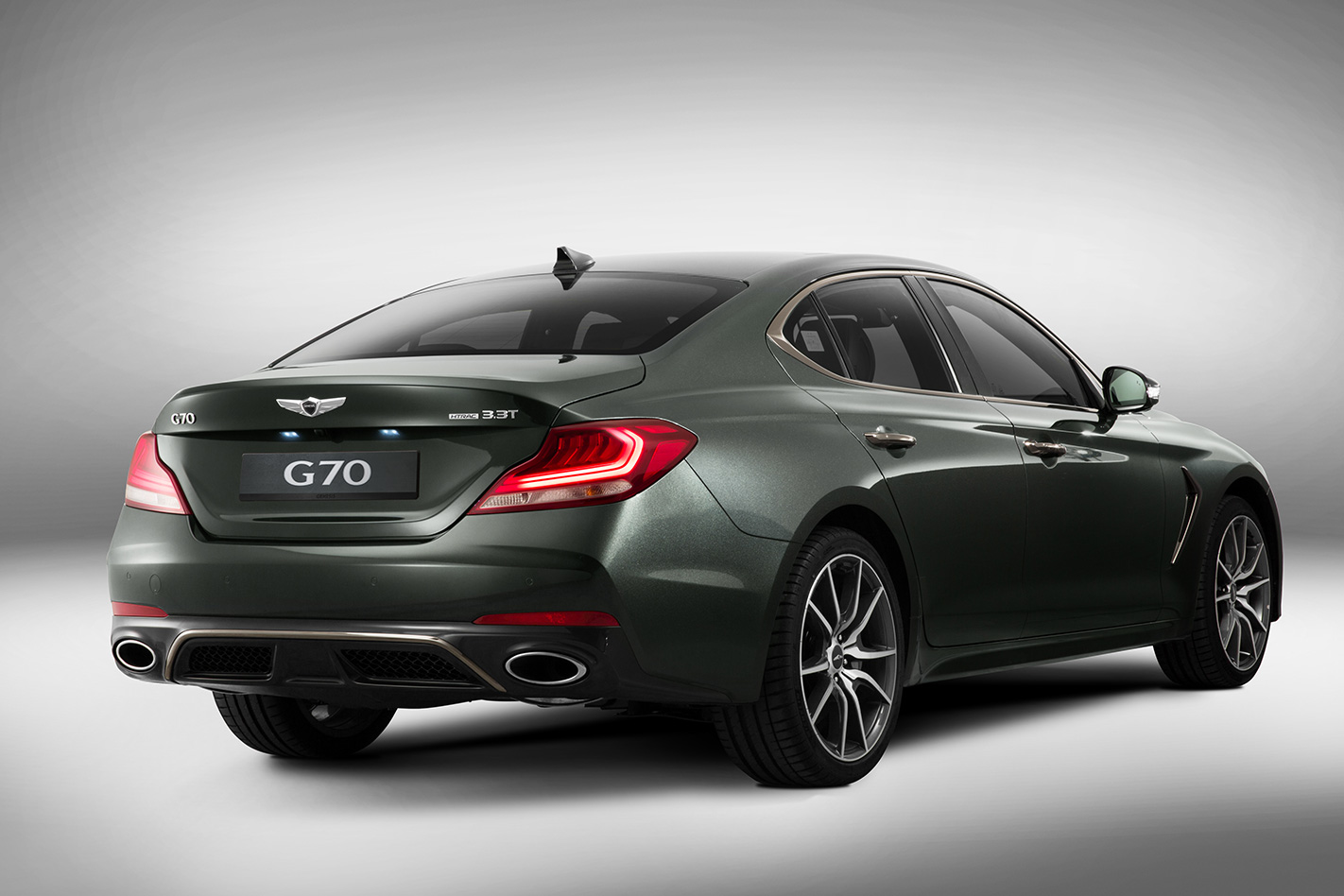
Both these engines are shared almost directly with those powering the new Kia Stinger, so that car provides the best indicators of performance and consumption at this stage, given that G70 weights should be down only slightly, and not significantly dissimilar.
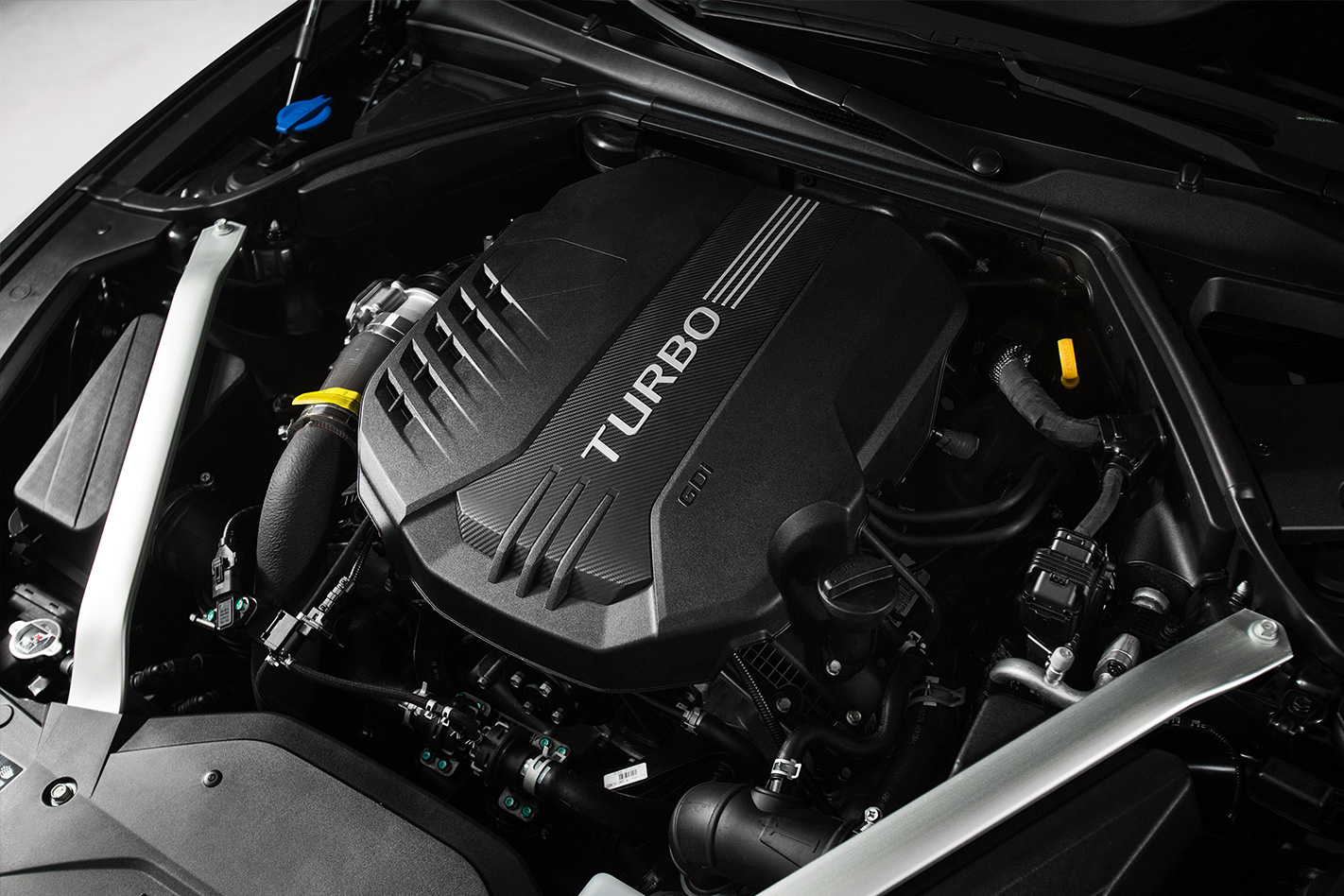
There’s no confirmation at this stage as to what Hyundai Australia will name the three spec levels offered for each engine choice, nor what the equipment levels will actually be. What we do know is that a semi-autonomous ‘Highway Assist’ system will feature on (at least) the top-spec models, launch control will be in the mix, and a mechanical limited slip diff and dynamic torque vectoring will be fitted (at the very least) to the middle- and top-spec V6 models. Expect adaptive dampers on all three V6 models; passive dampers fitted to all three of the four-cylinder models.
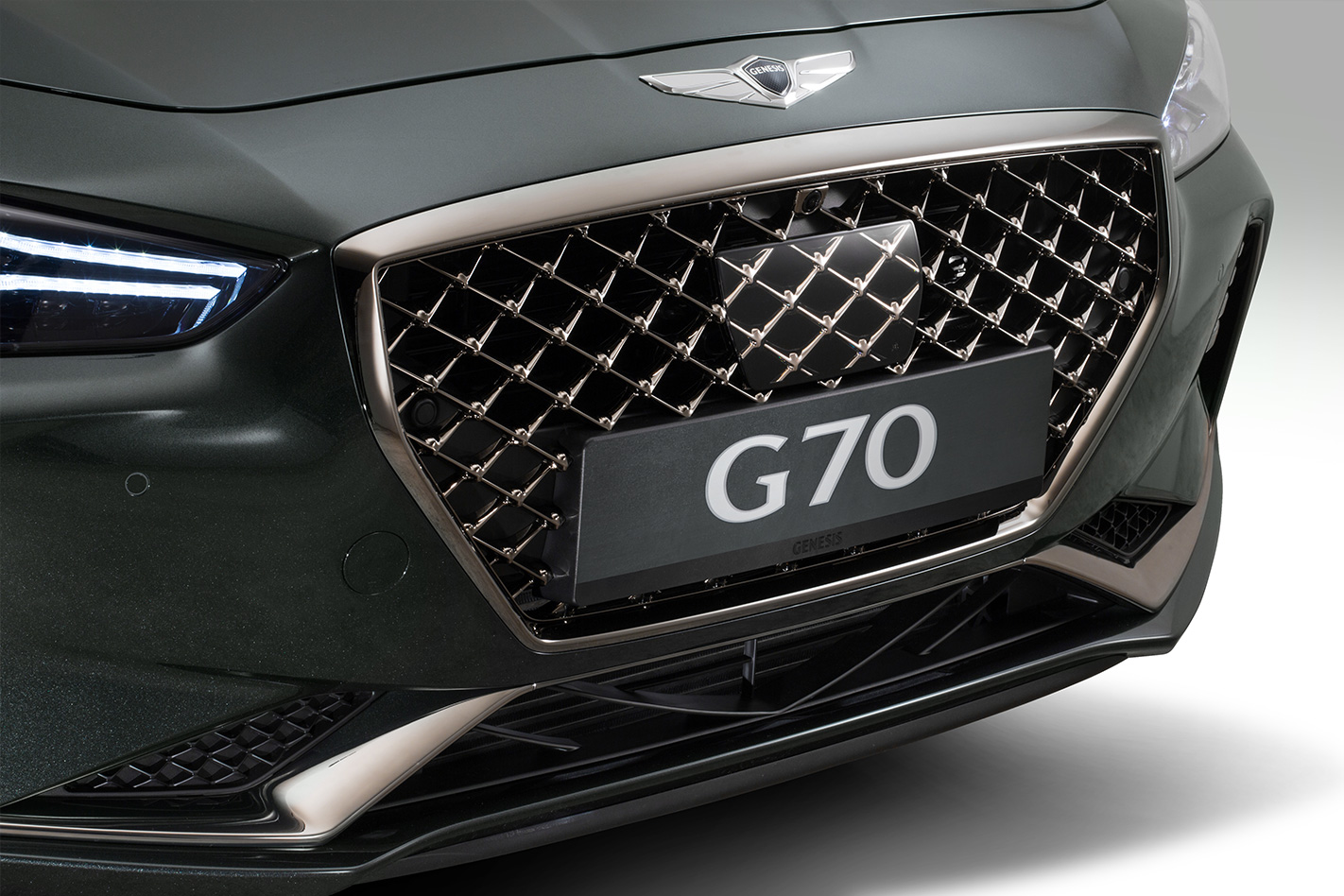
For pricing, we’re speculating that the entry point will be in the low $50K zone, undercutting even the base 1.4-litre Audi A4 and the three-cylinder entry-level BMW 318i by a few thousand. Mercedes-Benz’s dominant (in Australia) C-Class opens in the low-$60K bracket, so the Genesis G70’s price advantage should be significant.
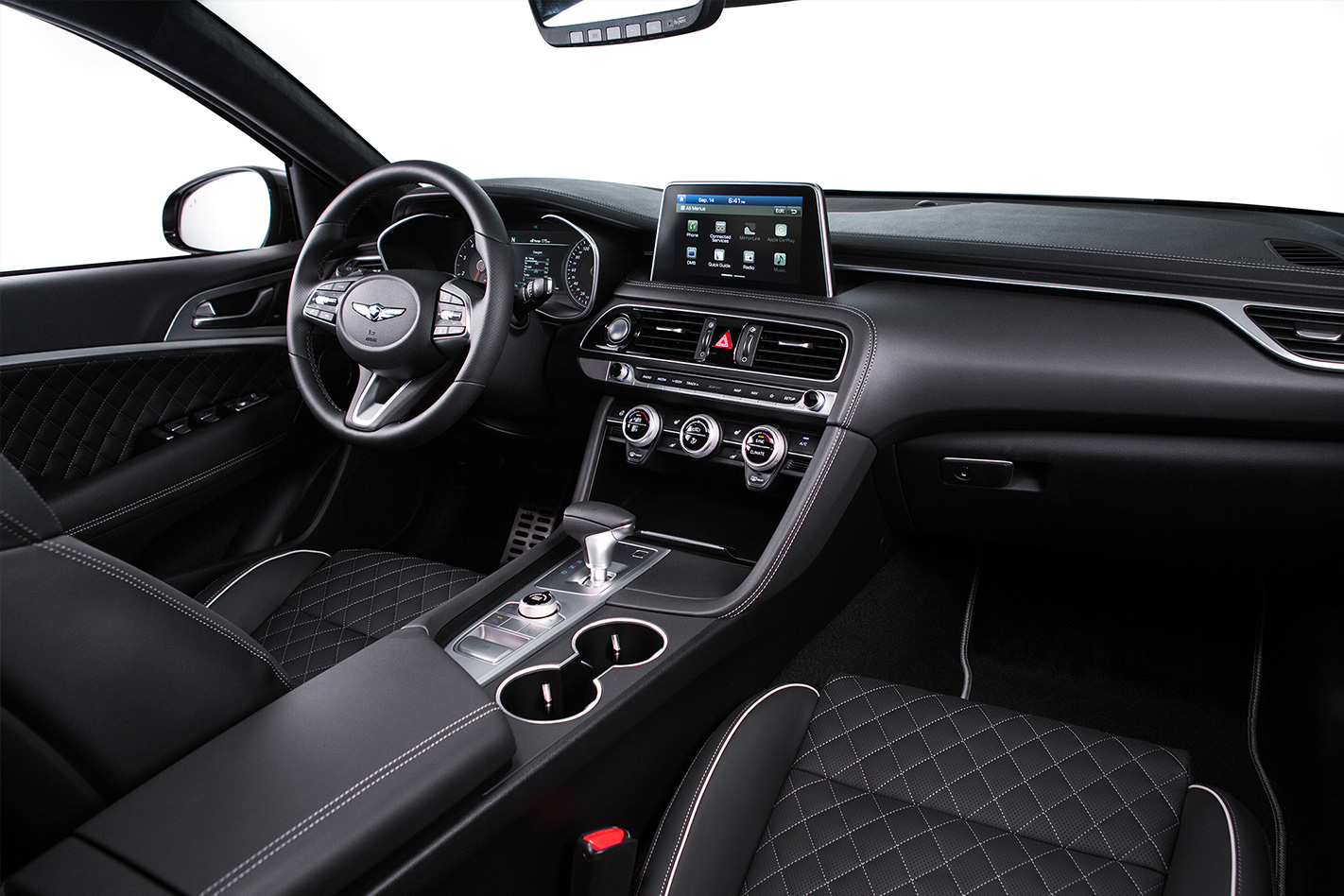
Then there’s the lure of loan-car delivery at service time, concierge-style services, and upmarket Genesis store-within-store set-ups at the Hyundai dealerships deemed appropriate to handle the Korean’s premium-brand sales.
